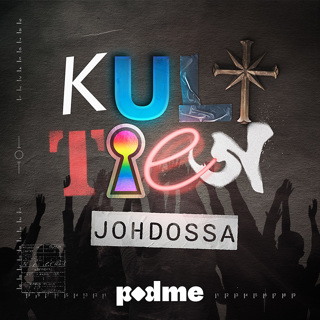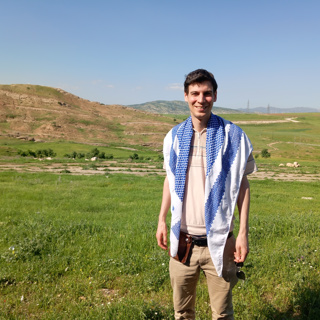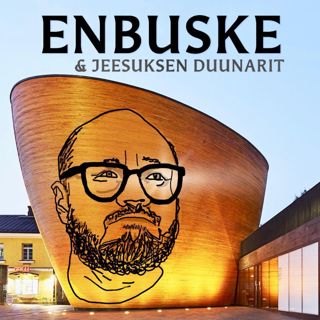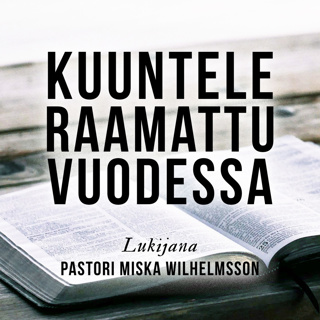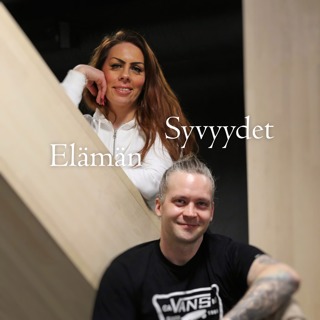![Infidelity: Consequences and Aftermath [Teshuva 3/5]](https://cdn.podme.com/podcast-images/D79089FBEF78B78B9B1A2A8AFD27F6A1_small.jpg)
Infidelity: Consequences and Aftermath [Teshuva 3/5]
This series is sponsored by our friends Mira and Daniel Stokar.In this episode of the 18Forty Podcast, we talk to an anonymous guest about infidelity and its consequences and aftermath. Additionally, we receive the expertise of clinical psychologist Dr. Malika Bhowmik, on re-establishing intimacy after violations of trust. We love to tell teshuva stories that have perfect and happy endings, but sometimes the most meaningful teshuva does not fix all of one’s problems immediately. In this episode we discuss: What does it mean to save a relationship that can no longer continue?How does one rebuild their religious identity after having their “good guy” image destroyed?Should an unfaithful spouse “come clean,” or should they “bear the brunt of the guilt” in secret?Tune in to hear a conversation about how we can strengthen our essential relationships and revitalize the excitement, joy, and sweetness of our religious lives. Interview with our anonymous guest begins at 16:10.Interview with Dr. Bhowmik begins at 1:49:00.Dr. Malika Bhowmik is a clinical psychologist in private practice, where she works with individuals and couples. Dr. Bhowmik received her doctorate in clinical psychology at the Graduate Center at City University of New York, where she wrote her dissertation on “A Grounded Theory Investigation of the Subjective Responses From Partners in Couples Where Infidelity Has Occurred.” Dr. Bhowmick was mentored by Esther Perel, LMFT, one of the most acclaimed thinkers and therapists on relationships, especially after crisis. References:Sin•a•gogue: Sin and Failure in Jewish Thought by David Bashevkinברגז רחם תזכור by David BashevkinSexaholics Anonymous: White BookAttached: The New Science of Adult Attachment and How It Can Help You Find—and Keep—Love by Amir Levine and Rachel HellerSingle On Purpose: Redefine Everything. Find Yourself First by John Kim Lamentations 5Genesis 3Mating in Captivity by Esther PerelAfter the Affair: Healing the Pain and Rebuilding Trust When a Partner Has Been Unfaithful by Janis A. SpringThe State of Affairs: Rethinking Infidelity by Esther PerelBecome a supporter of this podcast: https://www.spreaker.com/podcast/18forty-podcast--4344730/support.
5 Syys 20232h 47min
![Martha Minow: When Law Should Forgive: On the Limitations of Teshuva [Teshuva 2/5]](https://cdn.podme.com/podcast-images/D79089FBEF78B78B9B1A2A8AFD27F6A1_small.jpg)
Martha Minow: When Law Should Forgive: On the Limitations of Teshuva [Teshuva 2/5]
This series is sponsored by Mira and Daniel Stokar, and this episode is sponsored by our friends at Shikey Press, a boutique publisher of Jewish content disrupting the traditional model of book publishing.In this episode of the 18Forty Podcast, we talk to Martha Minow, a legal scholar and a professor at Harvard Law School, about forgiveness, law, and the boundaries of teshuva.In a world of ubiquitous transgression, our desire for justice and healing feels perpetually unsatisfied. Why is reconciliation seemingly so hard to get right? In this episode we discuss:How is doing teshuva different from confessing in court?What is the role of reparations in reconciliation?Why is forgiveness such an important part of human culture?Tune in to hear a conversation about why teshuva transcends our systems of justice.Interview begins at 17:13.Martha Minow is a legal scholar and professor at Harvard Law School, where she has taught since 1981. Martha serves as the 12th dean of Harvard Law School, was a candidate mentioned to replace Supreme Court Associate Justice John Paul Stevens upon his retirement, and has served as chair of the MacArthur Foundation. Martha clerked for Judge David Bazelon of the United States Court of Appeals for the D.C. Circuit and then for Justice Thurgood Marshall of the Supreme Court of the United States, and is the author of many articles and books on matters of civil procedure, constitutional law, and human and religious rights. References:“Warren Studies Talmudic Law Here”The Rabbi As Symbolic Exemplar by Jack H. BloomMakkot 13bWhen Should Law Forgive? by Martha MinowNetivot Olam, Netiv Hatshuva 2 Resisei Layla 3 Takanat HaShavin 8 The Sunflower: On the Possibilities and Limits of Forgiveness by Simon WiesenthalOn Apology by Aaron Lazare Mea Culpa: A Sociology of Apology and Reconciliation by Nicholas TavuchisBecome a supporter of this podcast: https://www.spreaker.com/podcast/18forty-podcast--4344730/support.
29 Elo 20231h 12min
![Rav Daniel Kalish: The Song of Teshuva [Teshuva 1/5]](https://cdn.podme.com/podcast-images/D79089FBEF78B78B9B1A2A8AFD27F6A1_small.jpg)
Rav Daniel Kalish: The Song of Teshuva [Teshuva 1/5]
This series is sponsored by Mira and Daniel Stokar, and this episode is sponsored by our anonymous friend R.G. In this episode of the18Forty Podcast, we talk to Rabbi Daniel Kalish, Menahel of the Mesivta of Waterbury, about how, with the right help, every person can forge their own path of religious commitment. We also get to meet five of Rabbi Kalish’s students, as well as a Mesivta of Waterbury dorm counselor. In a Jewish world full of pre-blazed trails, one of the great challenges of our time is the task of harnessing our passions to find our own way. In this episode we discuss: How can teenagers acquire a newfound fire in their spiritual lives?What goes into a positive parent-child relationship? What is the relationship between song, teshuva, and Torah? Tune in to hear a conversation about how all of us have the power to find the song of teshuva in our lives. Interview begins at 18:12.Rabbi Daniel Kalish is the Menahel of the Mesivta of Waterbury. Rav Kalish has gained wide acclaim for his radical warmth, creative approach with his students, and genuine openness to students of widely varying stages of life. Rav Kalish is beloved by many students who have learned from him from close and far, and is seen as innovative in his insistence on unconditional acceptance of students above all else. References:#MKY מי כעמך ישראלTractate NedarimThink Again: The Power of Knowing What You Don't Know by Adam Grant“Stone Cave” by Waterbury Mesivta“Tatty My King” by Waterbury MesivtaBecome a supporter of this podcast: https://www.spreaker.com/podcast/18forty-podcast--4344730/support.
22 Elo 20232h 13min
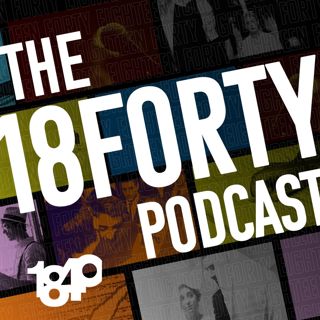
'Everything About Her Was Worth It': The Life of Yakira Leeba Schwartz A"H
This episode is sponsored by Dani and Nechamie Silberberg-Chitrik, in appreciation of the 18Forty Podcast and the work it does in having meaningful and thought-provoking conversations across all areas of Jewish life. In this episode of the 18Forty Podcast, we talk to Sara and Avi Schwartz about the life and loss of their daughter, Yakira Leeba Schwartz A”H. Additionally, we speak with Shelley and Ruvan Cohen about Nathaniel Cohen A”H. As we move toward Tisha B'Av, we hear two stories of how chesed has brought comfort to individuals enduring the most devastating losses. In this episode we discuss:What does it mean to live the fullest life possible with a disease such as muscular dystrophy?What is it like to care for a child who is very sick?What occurs during the days after the loss of a child?Tune in to hear a conversation about how we stay anchored and full of faith and loving-kindness amid the most difficult times.Shelley and Ruvan Cohen interview begins: 11:40.Sara and Avi Schwartz interviews begin at 57:29.References:Pirkei Avot 1:2“A Mother’s Kaddish: Mourning for My Son, From the Women’s Section” by Shelley Richman CohenElokai Neshama Lamentations 3Rashi on Lamentations 3:21Become a supporter of this podcast: https://www.spreaker.com/podcast/18forty-podcast--4344730/support.
25 Heinä 20233h 18min
![Yisroel Besser: How To Share Jewish Stories [Books II 4/4]](https://cdn.podme.com/podcast-images/D79089FBEF78B78B9B1A2A8AFD27F6A1_small.jpg)
Yisroel Besser: How To Share Jewish Stories [Books II 4/4]
This series is sponsored by an anonymous lover of books. In this episode of the 18Forty Podcast, we talk to Yisroel Besser, who authored many rabbinic biographies and brought David Bashevkin to Mishpacha magazine, about sharing Jewish stories. During his prolific career, Yisroel has written about Jewish lives with an eye for the good—and encouraged others along the way. In this episode we discuss: How does Yisroel go about writing a rabbi’s biography?What is the difference between “Shabbos for children” and “Shabbos for grown-ups”?What unexpected topic does Yisroel wish he could write about?Tune in to hear a conversation about looking at others with “beautiful eyes,” to tell their stories with a capacity to uplift.Interview begins at 19:44.Yisroel Besser is an author and journalist. Yisroel writes for Mishpacha magazine, and has authored several books, such as Reb Shayele: The Warmth and Wonder of Kerestir, The Tosher Rebbe, and Reb Leizer - The life and legacy of Rabbi Eliezer Geldzahler, among others. Yisroel joins us to talk about how we share Jewish stories. References:Top 5 by David Bashevkinברגז רחם תזכור by David BashevkinReb Shlomo - The Life and Legacy of Rabbi Shlomo Freifeld by Yisroel BesserReb Meilech on the Haggadah by Yisroel Besser Warmed By the Fire (Intimate Glimpses of Inspiring Leaders) by Yisroel BesserRabbi Meir Zlotowitz: His Vision, Wisdom, and Warmth Lit Up the World by Yisroel BesserI Samuel 22Become a supporter of this podcast: https://www.spreaker.com/podcast/18forty-podcast--4344730/support.
18 Heinä 20231h 50min
![Dara Horn: On Jewish Fiction and Non-Jewish Fiction [Books II 3/4]](https://cdn.podme.com/podcast-images/D79089FBEF78B78B9B1A2A8AFD27F6A1_small.jpg)
Dara Horn: On Jewish Fiction and Non-Jewish Fiction [Books II 3/4]
This series is sponsored by an anonymous lover of books. This episode is sponsored by Twillory. Use the coupon code 18Forty to get $18 off of all orders more than $139. In this episode of the 18Forty Podcast, we talk to Dara Horn, a leading contemporary Jewish writer, about how fiction and non-fiction can change the way we view our fellow Jews. While we at 18Forty love scholarly and factual writing, fiction has long enabled the Jewish people to be more imaginative and contemplative about the meaning of Jewish identity and memory in our collective past, present, and future. In this episode we discuss: What is Dara Horn’s writing process? What is the role of belief in literature? Are there living Jews whom we struggle to love? Tune in to hear a conversation about how, as Dara says, “the uncomfortable moments are where the story is.” Interview begins at 7:17. Dara Horn is a Jewish American novelist, essayist, and professor of literature. She has written five novels and in 2021, released a non-fiction essay collection titled People Love Dead Jews, which was a finalist for the 2021 Kirkus Prize in non-fiction. Her other books include All Other Nights, The World to Come, Eternal Life, and A Guide for the Perplexed. Dara joins us to talk about Jewish stories, in fiction and non-fiction. References:Eternal Life by Dara Horn Einstein's Dreams by Alan Lightman Sin•a•gogue: Sin and Failure in Jewish Thought by David Bashevkin Breakdown & Bereavement by Yosef Haim Brenner “Becoming Anne Frank” by Dara Horn People Love Dead Jews by Dara Horn “Savoring the Haterade: Why Jews Love Dara Horn’s ‘People Love Dead Jews’” by Shaul Magid “American Jews Know How This Story Goes” by Dara Horn Zakhor: Jewish History and Jewish Memory by Yosef Hayim Yerushalmi All Other Nights by Dara Horn College Commons Podcast from Hebrew Union College Adventures with Dead Jews from Dara Horn Mr. Mani by A. B. Yehoshua Being Wrong: Adventures in the Margin of Error by Kathryn Schulz“Message” by Avi ShafranBecome a supporter of this podcast: https://www.spreaker.com/podcast/18forty-podcast--4344730/support.
11 Heinä 20231h 31min
![Sarah Hurwitz and Alex Edelman: On Introducing Judaism [Books II 2/4]](https://cdn.podme.com/podcast-images/D79089FBEF78B78B9B1A2A8AFD27F6A1_small.jpg)
Sarah Hurwitz and Alex Edelman: On Introducing Judaism [Books II 2/4]
This series is sponsored by an anonymous lover of books. This episode is sponsored by Twillory. Use the coupon code 18Forty to get $18 off of all orders more than $139. In this episode of the 18Forty Podcast, we talk to returning guest comedian Alex Edelman, whose show has made it to Broadway, and his chavrusa, Sarah Hurwitz, former White House speechwriter and the author of Here All Along, about how to introduce people to a Judaism that is both inclusive and rigorous. In this episode we discuss: How does Alex Edelman write a one-man show “chavrusa-style”?What, according to Sarah Hurwitz, is the difference between “writing to be read” and “writing to be heard”?How does a writer bring a rich and relevant body of Jewish knowledge to the masses?Tune in to hear a conversation about the “neon entrance signs” of Jewish life and how every Jew can find a way into appreciating their inheritance.Alex Edelman interview begins at 13:32.Sarah Hurtwitz interview begins at 54:09. Alex Edelman is a product of Massachusetts’s Maimonides School and has been featured on Conan and The Late Show with Stephen Colbert. In 2020, he was the head writer and executive producer of the “Saturday Night Seder” YouTube extravaganza, which raised over $3.5 million for the CDC Foundation COVID-19 Emergency Response Fund. His show Just For Us is running on Broadway! While nights tend to sell out quickly, tickets are available here.Sarah Hurwitz is an American speechwriter. Sarah was a senior speechwriter for President Barack Obama in 2009 and 2010, and head speechwriter for First Lady Michelle Obama from 2010 to 2017, and was appointed to serve on the United States Holocaust Memorial Council by Barack Obama shortly before he left the White House. Sarah is the author of Here All Along: Finding Meaning, Spirituality, and a Deeper Connection to Life—in Judaism (After Finally Choosing to Look There).References:“Failure Goes to Yeshivah: What I’ve Learned From the Failure Narratives of My Students” by David BashevkinThis Is My God by Herman WoukPeople Love Dead Jews: Reports from a Haunted Present by Dara HornFor the Relief of Unbearable Urges: Stories by Nathan Englander White nights: The story of a prisoner in Russia by Menachem BeginThe Lonely Man of Faith by Joseph B. SoloveitchikGod in Search of Man : A Philosophy of Judaism by Abraham Joshua HeschelSuddenly, a Knock on the Door: Stories by Etgar Keret From Text to Tradition, a History of Judaism in Second Temple and Rabbinic Times: A History of Second Temple and Rabbinic Judaism by Lawrence H. Schiffman To the End of the Land by David GrossmanMy Name Is Asher Lev by Chaim PotokHere All Along: Finding Meaning, Spirituality, and a Deeper Connection to Life—in Judaism (After Finally Choosing to Look There) by Sarah HurwitzAs a Driven Leaf by Milton SteinbergBecome a supporter of this podcast: https://www.spreaker.com/podcast/18forty-podcast--4344730/support.
4 Heinä 20231h 51min
![Josh Foer: How Can You Make a Digital Library for All? [Books II 1/4]](https://cdn.podme.com/podcast-images/D79089FBEF78B78B9B1A2A8AFD27F6A1_small.jpg)
Josh Foer: How Can You Make a Digital Library for All? [Books II 1/4]
This series is sponsored by an anonymous lover of books.In this episode of the 18Forty Podcast, we talk to Joshua Foer, co-founder of Sefaria, about the revolutionary digital Jewish library of which he was the visionary.Prior to Sefaria, the possibility of finding the Talmud and other central Jewish texts in translation online felt entirely out of reach. Now, we take for granted that any Jew in the world can access the fullness of the tradition. In this episode we discuss: How did Foer come up with the idea for a comprehensive website of Jewish texts?What was Rabbi Adin Steinsaltz’s role in Sefaria putting his translation of the Talmud online?How does digitization change our relationship to Jewish books?What does having a “gender-sensitive” Tanakh actually mean?Tune in to hear a conversation about how to make the depth and breadth of Torah available to the entire Jewish community.Interview begins at 30:30.Joshua Foer is an author and founder. His book Moonwalking with Einstein was an international bestseller, and he is the co-founder of Atlas Obscura, Sefaria, the design competition Sukkah City, and most recently the Lehrhaus in Boston, Massachusetts. Josh joins us to talk about books real and virtual, and how to build a digital library. References:Book Journey with Elli FischerSefaria Moonwalking with Einstein: The Art and Science of Remembering Everything by Joshua FoerTalmud: The William Davidson Edition “Is Sefaria Kosher?” by Gil StudentTHE JPS TANAKH: Gender-Sensitive EditionBerakhot 22aBecome a supporter of this podcast: https://www.spreaker.com/podcast/18forty-podcast--4344730/support.
27 Kesä 20231h 36min




